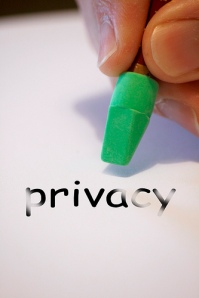It isn’t just that the opportunities for attention and self-promotion have expanded. If you’re reading this blog, you are probably aware of other blog hosts, Facebook, Twitter, Pinterest, Instagram, and YouTube. You also know of many more social media applications. Nearly all are free; professional versions for the seriously attention deprived are usually low-cost. Small marketing firms and self-employed marketers to tell us how to employ social media in service to our public image have also proliferated. Of course, the nefarious among us have been quick to exploit social media for cyberbullying, pedophilia, and identity theft. Nonprofit organizations and government agencies have responded with advice and strategies for social media users to protect themselves. These numerous brochures, slideshows, videos, and webinars are – needless to say – distributed by social media.
It isn’t just that social media are so widely and freely available; it is that so many people are actively choosing to use them to communicate. The latest toothpaste commercial, coupons for the newest toothpaste flavor, and a customer preferences survey can all be easily offered worldwide online. Pride in junior’s first word, too, can be easily shared on Facebook with grandparents living across the world. It can also be shared with whoever on both continents uses Facebook. Unfortunately, free access to social media has convinced some marginal sorts that any publicly posted photos, videos, and text can be copied and re-purposed as they wish. Toothpaste manufacturers may view this appropriation as free publicity. Junior may regret becoming a celebrity at the age of one year.
For these reasons, it is more important, yet more difficult to protect your own privacy. Choosing to avoid the web entirely is no longer an option for people in the paid workforce. Even if you decide not to become a member of the LinkedIn professional network, your employer may post your profile and photo on the company web site. Use of email to communicate within and without the company is routine and required. Etiquette for its use has improved, that is, most formal organizations have policies stipulating its format, content, and purpose. Still, very little policy and, certainly, not any oversight prevent people from forwarding any email message they receive. The threaded nature of email conversations is often forgotten as people are copied and recopied on new messages. Being circumspect about the content of your email messages or demanding a phone conversation can prevent the accomplishment of tasks or the development of important business relationships.
In the future, then, both definitions of privacy and social norms about its protection will most likely change. Just as children learn to use the telephone through parental instruction during conversations with grandparents, they will learn to post on the family social network page. Neighbors will welcome new residents to the block or housing development by posting to their social network page. Play dates, birthday parties, and weddings will all be scheduled and invitations issued online. Although interest in and incidents of sexting will decline, bullying will move nearly in its entirety from the athletic field and sidewalk to the web. No longer will people be enamored of establishing their own fame or infamy on the web, though. Few individuals will have Twitter, Instagram, YouTube, and Pinterest accounts. Even the creation and maintenance of web sites by individuals will decline. The web will become just another, albeit virtual, communication and home management appliance like an automatic washing machine or a television.
This winnowing of participation in social media will facilitate the management of your reputation online. Slanderers, bullies, and other interlopers will be fewer and more readily identified. Due to the instruction of children in the etiquette of social media by their parents, bullying behavior will become less severe. Often, it will be the equivalent of silly, anonymous jokes. Even these infractions will be promptly identified and routinely punished by service providers. Due to this permitted and expected prior review, not background investigation of new acquaintances, life will be less surprising, but it will be much more serene.
© Laura Rizzardini, Inc., 2013

You must be logged in to post a comment.